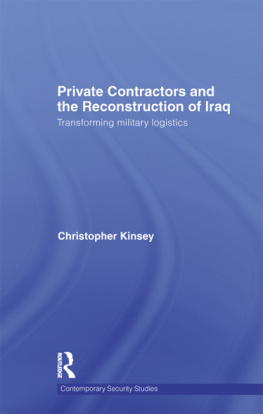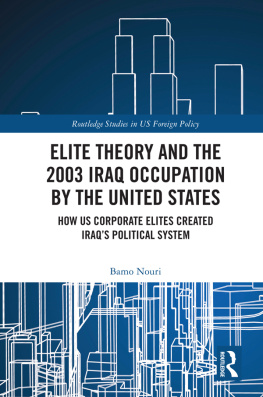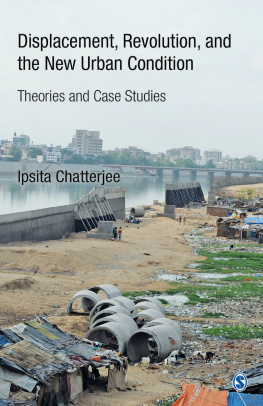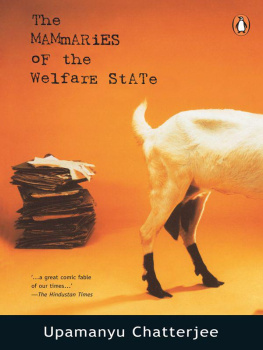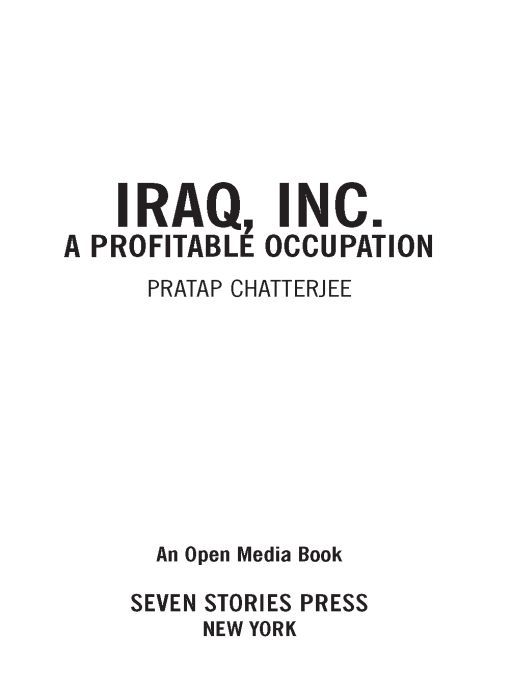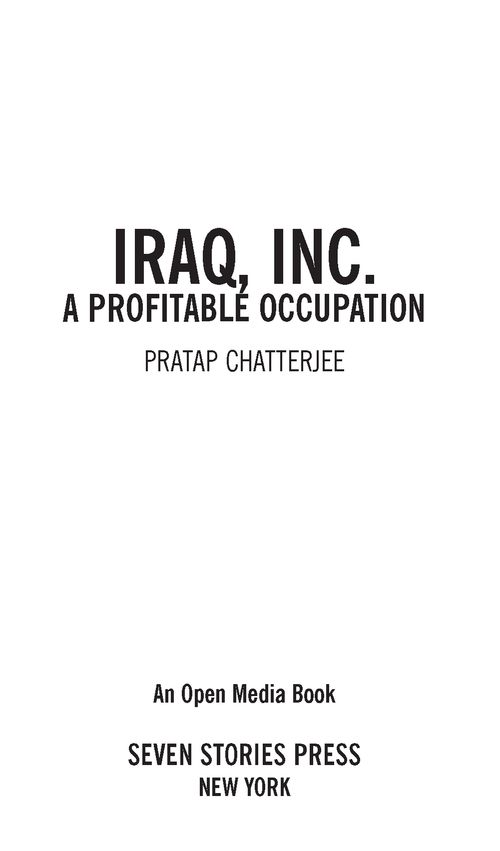Table of Contents
Introduction
April 9, 2004: On every minaret, a sniper. At every entrance to the mosque, a man with a Kalashnikov. At every alley abutting the Sheraton, a tank. On the first anniversary of the liberation of Iraq the streets appear deserted of civilians. Four neighborhoods of Baghdad are witnessing fierce street battles, the Marines have surrounded Fallujah, and Moqtada al Sadrs army is controlling half a dozen cities in the south.
I made my way though the maze of the hotel zone, threading around the triple rows of concertina wire and the Humvees racing up and down the Tigris. At the side of the road, U.S. soldiers crept along the grassy banks like theyd learned war from an action movie. Arriving at the mosque, I joined the long line of worshippers waiting to be searched, in this case, twice as thoroughly as at any American checkpoint. Then a vehicle appeared and my party was swiftly ushered past the crowds flocking for Friday afternoon prayers. Sahafin, sahafin! we would shout (Journalist, journalist!), the magic word that would cause every face to smile in welcome.
There werent many of us. Al Jazeera and Al Arabiya, two popular Arab stations, and myself. No CNN, no BBC, just one white photographer. Uneasily, I took a position on a wall above the moat, fearing that I might fall backwards into the green water, camera and all.
As the imam finished his sermon, tens of thousands spilled out of the Um al Qora mosque, the biggest Sunni mosque in Baghdad. I was swept up in the crowds and lifted on top of a van from which I could see all the way to the entranceit seemed the best view in town. Three young boys held down the legs of my tripod and another held out the shotgun microphone.
Below me an American flag appeared and a shout went up through the crowd. Looking back through the tapes, the scene seems almost like a gang war, the group of angry young men tearing the flag apart and finally setting it alight. A cry went up, Arsh, Arsh Moqtada! Arsh, Arsh Moqtada! (Long live Moqtada!), destined to send a chill into the hearts of every American soldier. At this Sunni mosque, every man was cheering wildly for a radical Shia cleric.
From every wall, it seemed, a young man would sing into the crowd in call and response. Jihad, Jihad, Jihad. The corners of the mosque were piled high with food, oil, and water waiting to be carried to the mujahideen (holy warriors), as they are already being called. Money piled high into the white sacks at the entrance to be sent to the resistance. The Iraqi intifada has begun, said one observer.
I returned to my room on the sixth floor of the Al Fanar hotel. Three doors down from me, a young man by the name of Nicholas Berg sat at a round glass-top coffee table and drank a beer with my neighbor, Andrew Robert Duke. The next morning he checked out and disappeared. He had arrived the day after me, traveling from the north as I did. He had spent a scant four days in the hotel and was never heard from alive again. Over a month later, his decapitated body was found near a highway.
Berg was an idealistic man, by all accounts, who wanted to help Iraq and hoped to set aside some money in the process. Alas, he was in the wrong place at the wrong time, and his tale corresponds, in part, to those of thousands of other earnest Americans who are now living in Iraq, and tens of thousands of unwilling soldiers who had been ordered to protect them while the powers that be in Washington rolled the dice in an economic and military experiment that has failed to make good on their promises. And indeed, taking the architects of the plan at their word, they had promised a lot. Regardless of the international debacle the decision to go to war had been, the administration vowed to transform what critics and a majority of Iraqis had deemed an occupation into liberation.
Just two weeks prior, in anticipation of the one-year anniversary, Paul Bremer delivered a laudatory state of the nation speech at the Baghdad City Council:
At liberation, this great country had been reduced to a shell, not by war, not by invasion, but by almost four decades of relentless greed and cruelty by its leaders. Instead of investing in Iraqs infrastructure, Saddams regime squandered and stole the nations wealth. Instead of serving his citizens Saddam deprived them of access to essential services. When liberation came, water, electricity, sewage, schools and much more were a shambles. When liberation came, not a single policeman was on duty in Iraq and the Army had disappeared.
What a difference a year can make in the life of the Iraqi people.
Today over 200,000 Iraqis are serving in Iraqs security forces protecting Iraq, its people and infrastructure.
Today Iraq has more electrical power than before liberation. And more is coming.
Already more than 2,500 schools have been rehabilitated by the Coalition.
Over 3 million Iraqi children under five have been vaccinated against polio and other diseases.
The Coalition has increased health care spending by more than thirty times and it is still growing.
Since May, the Coalition has completed almost eighteen thousand individual reconstruction projects across the length and breadth of the country.
The economy is picking up steam. And indicators are that unemployment is half what it was at liberationand possibly below what is was before the war.
Iraqs new currency has gained 29 percent since it was introduced just a few months ago.
Today over one million Iraqis enjoy telephone servicemore than before the war. And that number grows by 15,000 per week.
Iraq is once again a member of the international community, routinely joining sister states in the Arab League, the United Nations, the World Bank and IMF.
And, in an area where I am particularly happy to report, after over five hundred elections at sports clubs all over the country, Iraq is again a member of the International Olympic Committee. And this summer in Athens Iraqi athletes will compete under the Iraqi flag at the Olympics.
But the great achievement of Iraq is in the political area. Iraq is now on a path to full democracy in a united state at peace with its neighbors.
From the streets of Baghdad, gridlocked by day for want of traffic police, dark by nightfall for lack of electricity, and always overflowing with garbage, I wondered how Bremer and I could see such radically different Iraqs.
The patina on the occupation officials speech dulled when one examined the details or simply looked to the streets. According to official accounts, the administration had fallen far short of its stated commitment that Bremer had parroted to the council. At a House Appropriations Committee hearing in late April 2004 it was revealed that less than 5 percent of the $18.4 billion earmarked in fiscal 2003 for the reconstruction of Iraq had actually been spent. (When I spoke to Luke Zahner, an official at the United States Agency for International Development [USAID], he contradicted this report, saying that his agency alone had spent some $1.5 billionwhat amounts to a slim 8 percent of the total.) Just $2.3 billion had been allocated to projects through March 24, 2004 and only $1 billion had been spent.


